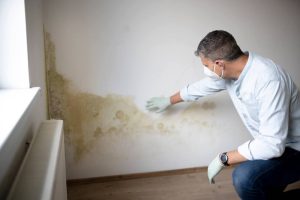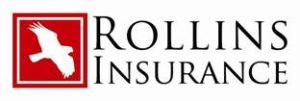 Mold is a common problem that many homeowners have to deal with at some point. It can be a costly and frustrating issue to resolve, especially if you’re unsure about whether your homeowners insurance will cover the damages. In this comprehensive guide, we will explore the ins and outs of mold insurance, providing you with the information you need to navigate this potential headache.
Mold is a common problem that many homeowners have to deal with at some point. It can be a costly and frustrating issue to resolve, especially if you’re unsure about whether your homeowners insurance will cover the damages. In this comprehensive guide, we will explore the ins and outs of mold insurance, providing you with the information you need to navigate this potential headache.
Understanding Mold and Its Causes
Before delving into the specifics of mold insurance, it’s important to have a clear understanding of what mold is and what causes it. Mold is a type of fungus that thrives in damp and humid environments. It can grow almost anywhere there is moisture, and it reproduces by releasing spores into the air.
The most common causes of mold growth in homes include:
- Water leaks from pipes, roofs, or appliances.
- Flooding from natural disasters or plumbing failures.
- High humidity levels.
- Poor ventilation.
If left unchecked, mold can cause structural damage to your home and pose health risks to you and your family. That’s why it’s crucial to address mold issues promptly and effectively.
Does Homeowners Insurance Cover Mold?
The question on every homeowner’s mind is whether or not their insurance policy covers mold damage. The answer is not always straightforward, as it depends on various factors, including the cause of the mold and the specifics of your policy.
- Covered Perils and Mold Insurance
Most homeowners insurance policies cover mold to some extent, but only if it is a result of a covered peril. Covered perils include instances of sudden and accidental water damage, such as:
- Water leaks from malfunctioning appliances.
- Burst pipes or hot water heaters.
- Water damage caused by firefighters extinguishing a fire in your home.
In these cases, if mold develops as a result of the covered peril, your insurance policy may cover the cost of mold removal and repairs. However, it’s important to note that the coverage for mold removal and remediation is often limited and subject to certain caps or limits.
- Mold Caused by Floods or Acts of Nature
Mold damage resulting from flooding or other acts of nature is typically not covered by standard homeowners insurance policies. If you live in an area prone to floods, it’s essential to purchase separate flood insurance to protect yourself against mold and other flood-related damages.
Flood insurance policies can cover mold removal and repairs necessitated by flooding, providing you with peace of mind and financial protection against the devastating effects of water damage.
- Mold Resulting From Negligence
Negligence on the part of the homeowner, such as failing to address water leaks or maintain proper ventilation, is generally not covered by homeowners insurance. If mold forms due to neglect or lack of upkeep, your insurer is unlikely to reimburse you for mold removal and remediation expenses.
To ensure that you are covered in case of mold damage, it’s crucial to take preventative measures and maintain your home properly. Regularly inspecting your plumbing, addressing leaks promptly, and ensuring proper ventilation can go a long way in preventing mold growth and potential insurance claim denials.
How to Avoid Mold Damage and Insurance Claim Denials
Prevention is key when it comes to mold. By taking proactive steps to minimize moisture and maintain your home, you can reduce the likelihood of mold growth and potential insurance claim denials. Here are some tips to help you avoid mold damage and ensure a smooth insurance claims process:
- Maintain Proper Ventilation: Good airflow is essential to prevent moisture buildup. Make sure your home is adequately ventilated, especially in areas prone to dampness, such as bathrooms, laundry rooms, and kitchens.
- Address Water Leaks Promptly: Whether it’s a leaking pipe, roof, or appliance, don’t ignore water leaks. Fix them as soon as possible to prevent water damage and mold growth.
- Monitor Humidity Levels: Keep an eye on humidity levels in your home, especially during humid seasons. Consider using dehumidifiers in areas that tend to be more humid.
- Regularly Inspect Your Home: Conduct routine inspections of your home to identify and address any potential areas of concern. Check for signs of water damage, such as stains or discoloration on walls and ceilings.
- Properly Insulate and Seal: Ensure that your home is properly insulated and sealed to prevent moisture infiltration. Insulate interior and exterior pipes during the winter months to prevent freezing and potential leaks.
- Document and Maintain Records: In the unfortunate event of mold damage, document the damage with photographs or videos. Keep up-to-date maintenance records to demonstrate that you have taken proper care of your home.
- Follow Insurance Company Instructions: If you need to file a mold damage claim, carefully follow your insurance company’s instructions. Provide all necessary documentation and cooperate throughout the claims process.
- Consult a Licensed Contractor: If your mold claim is denied, consider seeking a second opinion from a licensed contractor to assess the cause of the damage. They can provide professional insight that may help support your claim.
Remember that each insurance policy is unique, so it’s crucial to review your specific policy and consult with your insurance agent to fully understand the coverage and exclusions related to mold damage.
Understanding mold insurance is vital for every homeowner. While coverage for mold damage varies depending on the cause and your specific policy, taking preventative measures and maintaining your home can significantly reduce the likelihood of mold growth. By being proactive and informed, you can protect your property and ensure a smooth insurance claims process in the event of mold-related issues.
Contact us (859-781-7283) for more information or get a free quote!
—
 About Rollins Insurance
About Rollins Insurance
Rollins Insurance is an independent insurance agency providing our clients the best prices with the most coverage possible since 2008. We represent multiple A-rated insurance companies to make sure we deliver the most competitive rate packages to our clients in Kentucky and Ohio. We find that most people are under-insured and over-paying when we meet them. We love what we do and our primary business is Personal Auto, Homeowners, and Life and Health insurance. We are a family-owned and managed business that specializes in providing needs-based insurance services.
>> Learn More About Us and Our Staff
